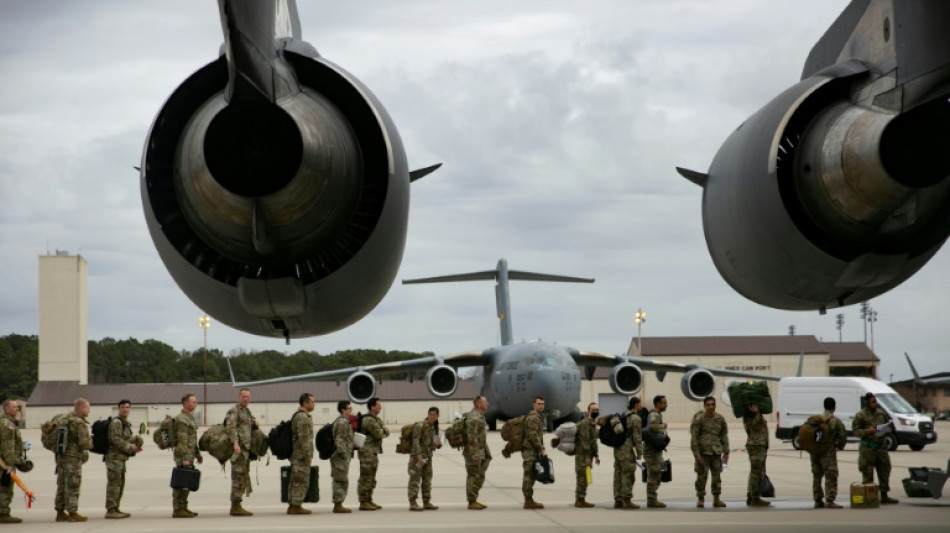
-
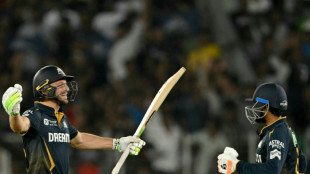 Buttler one of five IPL players in England squad despite fixture clash
Buttler one of five IPL players in England squad despite fixture clash
-
'I thought I was going to die,' Kardashian tells in Paris robbery trial
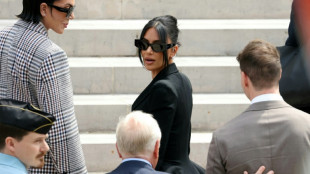
-
 Cycling great Wiggins admits cocaine addiction after retiring
Cycling great Wiggins admits cocaine addiction after retiring
-
Princess Catherine says nature her 'sanctuary' amid cancer recovery
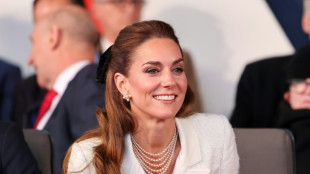
-
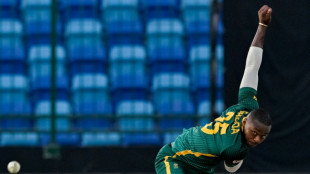 Rabada leads South African pace attack for World Test final
Rabada leads South African pace attack for World Test final
-
Alcaraz battles into Italian Open quarter-finals
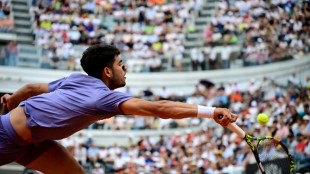
-
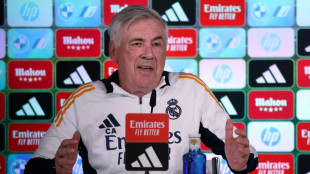 Departing Ancelotti has 'no problem' with Real Madrid
Departing Ancelotti has 'no problem' with Real Madrid
-
Murray and Djokovic end coaching partnership after six months
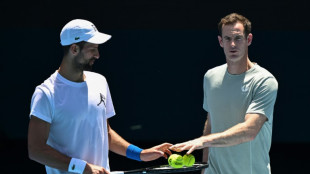
-
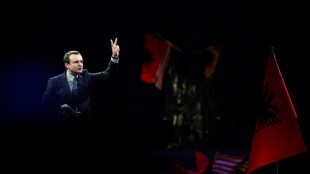 Stand-off leaves Kosovo unable again to elect speaker
Stand-off leaves Kosovo unable again to elect speaker
-
Forest striker Awoniyi has surgery after post collision

-
 Rights groups take UK govt to court over Israel arms sales
Rights groups take UK govt to court over Israel arms sales
-
Cannes Festival under pressure to take stance on Gaza war
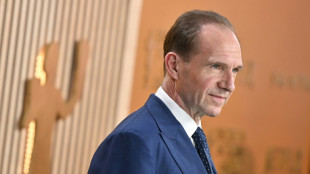
-
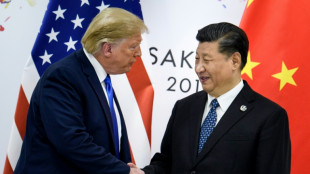 European stocks, dollar steady after China-US truce rally
European stocks, dollar steady after China-US truce rally
-
Putin skipping talks would signal Moscow not seeking peace: Kyiv
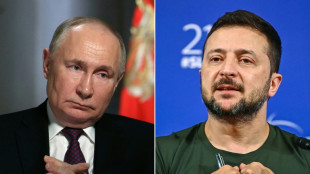
-
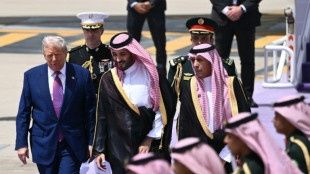 Trump basks in Saudi welcome on business-focused state visit
Trump basks in Saudi welcome on business-focused state visit
-
French court convicts Depardieu of sexual assault
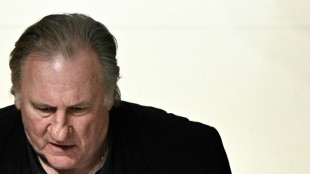
-
 Customer data stolen in Marks & Spencer cyberattack
Customer data stolen in Marks & Spencer cyberattack
-
German investors cheered by tariff talks, new government

-
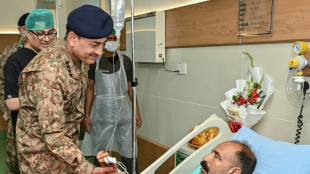 India kills three suspected militants in Kashmir as Pakistan ceasefire holds
India kills three suspected militants in Kashmir as Pakistan ceasefire holds
-
Medical charity condemns Israel's use of hunger as 'weapon of war' in Gaza

-
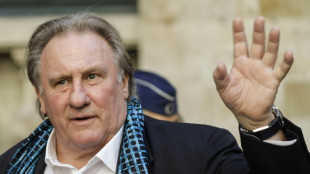 Gerard Depardieu: a tarnished French film icon
Gerard Depardieu: a tarnished French film icon
-
Hoy says cancer 'stable' as he 'makes hay while sun shines'

-
 Nissan posts $4.5 bn annual net loss, to cut 20,000 jobs
Nissan posts $4.5 bn annual net loss, to cut 20,000 jobs
-
French court gives Depardieu 18-month suspended sentence for sexual assault
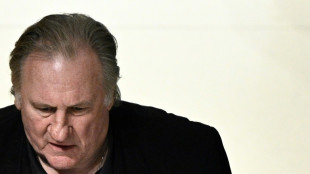
-
 Universe dying quicker than thought, says new research
Universe dying quicker than thought, says new research
-
Police raid conspiracy theorist group 'Kingdom of Germany'
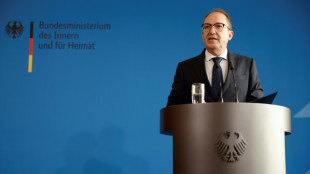
-
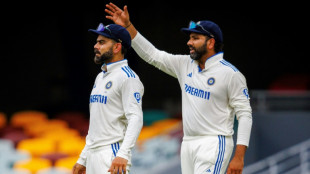 Kohli, Rohit exits leave India facing uncertain new era
Kohli, Rohit exits leave India facing uncertain new era
-
Murray splits from tennis great Djokovic
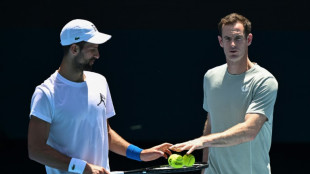
-
 Nissan posts $4.5 billion annual net loss, says to cut 20,000 jobs
Nissan posts $4.5 billion annual net loss, says to cut 20,000 jobs
-
Most markets extend rally in glow of China-US truce
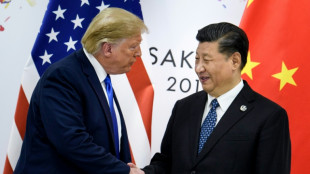
-
 Kim Kardashian to testify in multi-million-dollar Paris robbery trial
Kim Kardashian to testify in multi-million-dollar Paris robbery trial
-
Trump in Saudi Arabia on Gulf tour, eyeing major deals
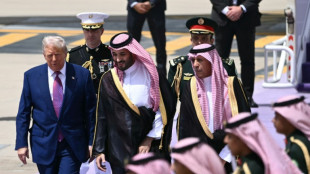
-
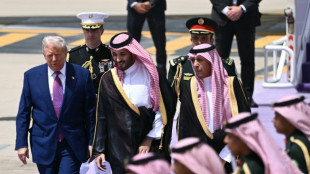 Trump starts Gulf trip in Saudi eyeig deals
Trump starts Gulf trip in Saudi eyeig deals
-
Pakistan says 51 killed in India clashes last week
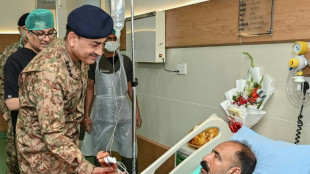
-
 Cricket Australia to support players' decisions on IPL return
Cricket Australia to support players' decisions on IPL return
-
Honda forecasts 70% net profit drop citing 'tariff impact'

-
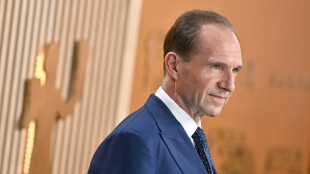 Hollywood stars condemn Gaza 'genocide' as Cannes Festival opens
Hollywood stars condemn Gaza 'genocide' as Cannes Festival opens
-
China swipes at 'bullying' US as it woos Latin American leaders
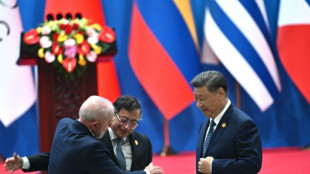
-
 Japan's SoftBank posts $7.8 bn annual net profit
Japan's SoftBank posts $7.8 bn annual net profit
-
Tariffs set to level up game console prices

-
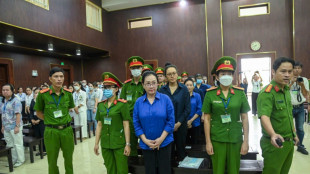 Vietnam death row tycoon promises to turn properties into 'golden goose'
Vietnam death row tycoon promises to turn properties into 'golden goose'
-
Trump starts Gulf trip in Saudi eyeing deals
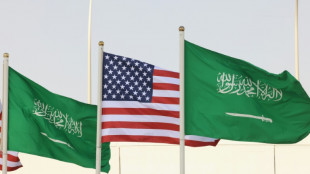
-
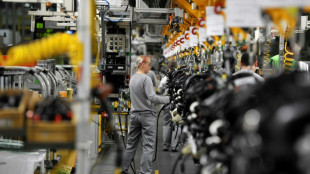 US tariffs hit Central Europe, Balkans growth: Europe bank
US tariffs hit Central Europe, Balkans growth: Europe bank
-
No truce in India-Pakistan disinformation war
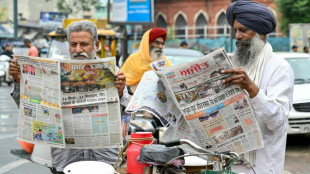
-
 Japan rugby tightens eligibility rules on foreign-born players
Japan rugby tightens eligibility rules on foreign-born players
-
Knicks leave Celtics on brink, Warriors facing exit

-
 Urban temps turning cities into 'ovens,' UN Chief Heat Officer warns
Urban temps turning cities into 'ovens,' UN Chief Heat Officer warns
-
Cummins, Hazlewood, Green return in Australia's WTC final squad
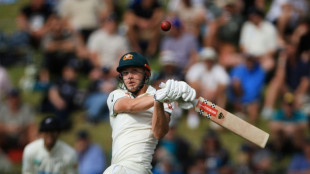
-
 Scientists in Mexico develop tortilla for people with no fridge
Scientists in Mexico develop tortilla for people with no fridge
-
Jaded young Chinese reset lives with rural 'retirement'


How US might help Ukraine -- without broadening the war
The United States believes Russia is digging in for a protracted war, and Washington wants to help Kyiv resist, but an overarching goal remains -- limiting the conflict to Ukraine to avoid spillover that could provoke "World War III."
The US military establishment is walking a tightrope as it seeks to balance such demands and avoid nuclear escalation, according to public statements by American leaders and AFP interviews with several officials who spoke on condition of anonymity to discuss the sensitive issue.
The conflict "may not be over soon," warned Secretary of State Antony Blinken during his latest visit to Europe.
US intelligence sources initially feared a lightning attack that would see Kyiv fall within days. But the Pentagon soon realized Russia's army was "behind" in its battle plan, due to logistical problems and Ukraine's fierce resistance.
The US military assumes, however pessimistically for Washington, that Russia's massive and superior military capacity could eventually overwhelm Kyiv.
As one senior US defense official put it: "I just don't think we should underestimate" Moscow's "firepower."
- Putin 'destined to lose' -
The suffering, Blinken cautioned, "is likely to get worse before it gets better."
But Russian President Vladimir Putin "is destined to lose," he insisted.
In private, US officials go further, not hesitating to assert the Russian leader has already lost. And they are adapting their strategy accordingly.
Their first priority is to keep providing major assistance to Ukraine's resistance so it can hold on, even if some cities begin to fall.
The Americans have put in place "robust information and intelligence sharing with Ukraine," one diplomat explained, in particular to enable anti-aircraft defenses to thwart some of Russia's attacks.
An unprecedented $350 million in emergency military aid announced in late February has already been delivered to Ukrainian forces in the form of Stinger anti-aircraft missiles and portable Javelin anti-tank missiles.
Washington plans to release a massive $10-billion package including economic and humanitarian assistance, along with more weaponry and ammunition.
There is "no limit" to military assistance, one senior US official stressed, so long as it does not involve offensive heavy weapons.
Americans' great fear is that Putin, should he feel provoked, will extend the conflict beyond Ukraine, risking a direct -- and potentially nuclear -- confrontation with the United States and its NATO allies.
Therefore, the need to "contain the president of Russia" becomes a prime directive, said one US official.
- Red line -
Preventing a broadening of the war is a red line that was bluntly summarized by another official: "We don't want World War III."
Even before Russia's invasion, President Joe Biden -- acutely mindful of the threat of a nuclear face-off -- warned that any direct US involvement in Ukraine would provoke a "world war." He has given directives to avoid such a spiral, by limiting the capacity of American intervention.
Washington is therefore emphasizing the preventive and deterrent deployments of soldiers in allied countries that are on Russia's doorstep, which have been visited by Blinken and US Chief of Staff General Mark Milley.
But any option that could be interpreted by Putin as a major escalation has been ruled out, to avoid Moscow branding any NATO country a "co-belligerent" of Ukraine.
Should the Russians attack forces of a single NATO country, all other members of the transatlantic alliance, including the United States, would be obligated to come to its aid militarily under Article 5 of the treaty that unites them, and which Biden has pledged to respect.
Establishing a no-fly zone over Ukraine, sought by its President Volodymyr Zelensky, has been rejected by Washington and NATO.
The reason: NATO planes would have to be prepared to shoot down Russian fighters, and "that could lead to a full-fledged war," Blinken said.
Putin, for his part, has threatened "colossal and catastrophic consequences" for Europe and the wider world if a no-fly zone is implemented.
Given such tensions, Washington has blown hot and cold on the possible delivery to Kyiv, via countries like Poland, of Soviet-made fighter jets on which Ukrainian pilots have trained.
- 'Off-ramps' -
Biden's administration, at first reluctant to mention the prospect, eventually admitted it was "actively" studying the plan. But it has offered no firm commitment, or a timetable.
Some in Washington worry such a gesture would be enough to bring US confrontation with Moscow to a head, without even significantly changing the balance of power in Ukraine's skies.
While calls for more forceful Western intervention grow as images of dead civilians shock the public, US leaders remain committed to the delicate balancing act.
They hope ramping up pressure on the Kremlin with sanctions will eventually cause Putin to conclude that prosecuting his war is more costly than withdrawing.
But this would require keeping diplomatic channels open to offer him "off-ramps."
Having ceased all high-level contact with the Russians since February 24, the Americans are encouraging others to talk to Putin.
A weekend mediation attempted by Israel was seen in this light.
Similarly, Blinken's phone call to Chinese Foreign Minister Wang Yi, at a time when Beijing boasts of its "rock-solid" friendship with Moscow, did not exclude the possibility of China playing an intermediary role.
L.Mason--AMWN